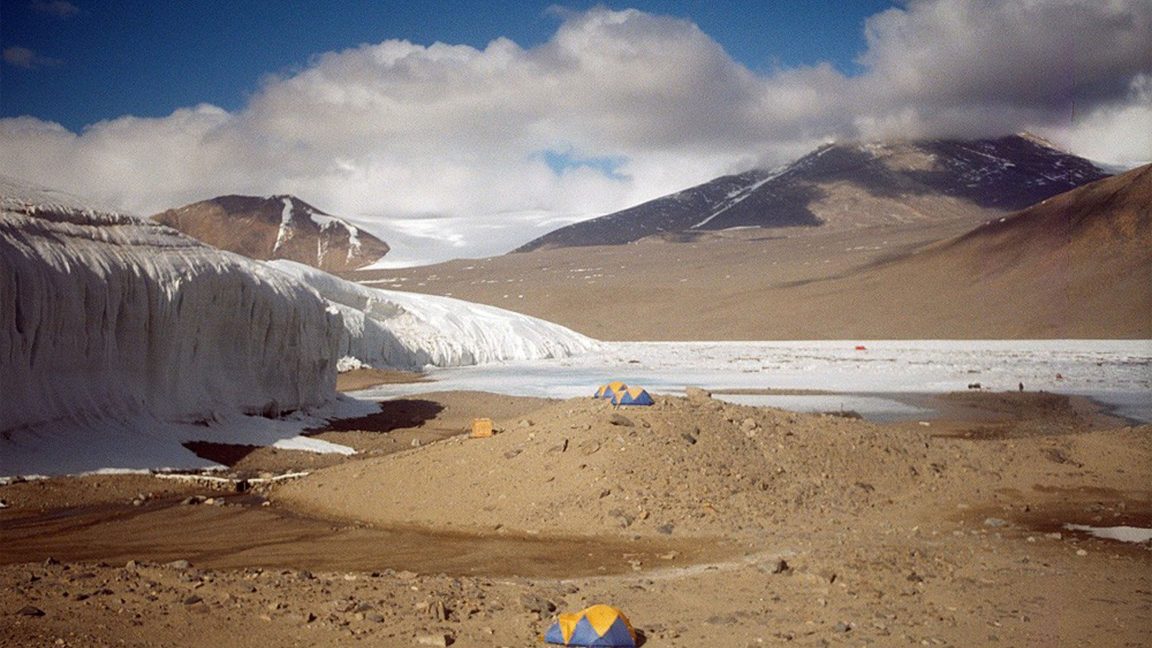
White House budget proposal could shatter the National Science Foundation
arstechnica.com
Sending science over the cliff White House budget proposal could shatter the National Science Foundation "This kind of cut would kill American science and boost China." Eric Berger Feb 6, 2025 5:38 pm | 48 One of the glaciers in the McMurdo Dry Valleys dwarfs the tents of researchers who have travelled to Antarctica to study it. Credit: Peter West/National Science Foundation One of the glaciers in the McMurdo Dry Valleys dwarfs the tents of researchers who have travelled to Antarctica to study it. Credit: Peter West/National Science Foundation Story textSizeSmallStandardLargeWidth *StandardWideLinksStandardOrange* Subscribers only Learn moreSometime during the next several weeks, the directors of federal agencies will receive a draft version of President Trump's budget request for the coming fiscal year, which begins on October 1. This "passback review" is a standard part of the federal budgeting process which ends in Congress writing a budget and the president signing it into law.The budget request will be the first of President Trump's second term, and it will offer a clear window into the priorities of his new administration. Although widespread cuts are expected for much of the government's discretionary spending, the outlook for the National Science Foundation appears to be especially grim.During an emotional all-hands meeting on Tuesday, the agency's assistant director, Susan Margulies, told agency employees to expect between a quarter and a half of its staff to be laid off within the coming months, E&E News reported.On Thursday, two sources told Ars that the science agency should expect to see steep cuts in Trump's forthcoming budget request. In recent years, the National Science Foundation has received an annual budget of approximately $9 billion, the vast majority of which is spent on research and research-related activities. The cuts could be as deep as 66 percent, with one person indicating the top-line budget number for the National Science Foundation could start at $3 billion.Such a massive cut is not out of line with a proposal made by Russ Vought for the fiscal year 2023 budget as part of his Center for Renewing America. Vought is expected to become the White House budget director in the coming days. Three years ago, Vought proposed cutting the National Science Foundation budget to $3.9 billion. The cuts, he wrote, would require NSF "to make better decisions and target grants to actual research that will benefit the whole country, not just propagandize for woke ideology."The president proposes, and Congress disposesThere are important caveats to this proposal. The Trump administration has probably not even settled upon the numbers that will go into its draft budget, which then goes through the passback process in which there are additional changes. And then, of course, the budget request is just a starting point for negotiations with the US Congress, which sets budget levels.Even so, such cuts could prove disastrous for the US science community."This kind of cut would kill American science and boost China and other nations into global science leadership positions," Neal Lane, who led the National Science Foundation in the 1990s during Bill Clinton's presidency, told Ars. "The National Science Foundation budget is not large, of the order 0.1 percent of federal spending, and several other agencies support excellence research. But NSF is the only agency charged to promote progress in science."The National Science Foundation was established by Congress in 1950 to fund basic research that would ultimately advance national health and prosperity, and secure the national defense. Its major purpose is to evaluate proposals and distribute funding for basic scientific research. Alongside the National Institutes of Health and Department of Energy, it has been an engine of basic discovery that has led to the technological superiority of the United States government and its industries.Some fields, including astronomy, non-health-related biology, and Antarctic research, are all almost entirely underwritten by the National Science Foundation. The primary areas of its funding can be found here.Eric BergerSenior Space EditorEric BergerSenior Space Editor Eric Berger is the senior space editor at Ars Technica, covering everything from astronomy to private space to NASA policy, and author of two books: Liftoff, about the rise of SpaceX; and Reentry, on the development of the Falcon 9 rocket and Dragon. A certified meteorologist, Eric lives in Houston. 48 Comments
0 Yorumlar
·0 hisse senetleri
·60 Views


